Practicing Restorative Justice
2-Day Circle Training: April 7-8 | 8:00 am - 4:00 pm
1-Day Circle Training: April 8 | 8:00 am - 4:00 pm
Conference: April 9 | 8:00 am - 5:00 pm & April 10 | 8:00 am - 1:00 pm
MSUM Comstock Memorial Union
615 14th St South, Moorhead, MN 56563
Save the date for MSUM’s Practicing Restorative Justice Conference event, April 7-10. Hosted by MSUM’s Office of Diversity and Inclusion and the Sociology and Criminal Justice Department in partnership with Consensus Council (ND), the conference will will bring together educators, practitioners, justice professionals, students, and community members to explore the transformative power of Restorative Justice in building stronger, more connected communities.
Cost & Registration
Registration is open! Packages that include a Circle Training and the Practicing Restorative Justice Conference are located towards the bottom. If you are registering for multiple parties who plan to attend different events or event packages, multiple transactions will be required.
- Circle Training WAIT LIST - $250, $25 for MSUM students
Hosted by Joel Friesz
2-Day Training, April 7-8: 8:00 am - 4:00 pm
Limited space (Max: 20) - FULL
Thank you to those who have expressed interest in attending a possible second 2-Day Circle Training. We have decided not to open a second group for April 7-8. Those who added themselves to the waiting list will receive additional information in the week following the conference. Please reach out to Joel Friesz at joelfriesz@outlook.com if you have any questions or concerns. - Restoring Balance: The Historical Context of Indigenous Peacemaking and Circle Training - $150, $25 for MSUM students
Hosted by Natasha Gourd
1-Day Training, April 8: 8:00 am - 4:00 pm
Limited space (Max: 20)
1-Day Restoring Balance with Natasha Gourd Registration - Practicing Restorative Justice Conference - $200, $25 for MSUM students
Co-Sponsored by MSUM and Consensus Council
1.5 Day Event, April 9 (8:00 am - 5:00 pm) and April 10 (8:00 am - 1:00 pm)
Featuring keynotes and presenters from across the region
Practicing Restorative Justice Conference Registration- Packages:
- 2-Day Circle Training and Practicing Restorative Justice Conference
$375, $50 for MSUM Students
Practicing Restorative Justice & 2-Day Circle Training Registration - 1-Day Circle Training and Practicing Restorative Justice Conference
$325, $50 MSUM Students
Practicing Restorative Justice & 1-Day Circle Training Registration
- 2-Day Circle Training and Practicing Restorative Justice Conference
- Packages:
April 9-10, 2025: Schedule
Wednesday, April 9 Agenda
| Time | Title | Location |
|---|---|---|
|
7:30-8:00 am |
Registration Opens & Vendor Setup |
CMU |
|
8:00-8:30 am |
Light Breakfast (provided) |
CMU Ballroom |
|
8:30-9:00 am |
Introductions |
CMU Ballroom |
|
Welcome |
||
|
Land Acknowledgement |
||
|
Opening Prayer & Song |
||
|
9:30-10:15 am |
Keynote Session "A Life Restored" Tito Campbell, Restorative Justice Specialist |
CMU Ballroom |
|
10:15-10:30 am |
Break |
|
|
10:30-11:45 am |
AM Breakout Sessions |
|
|
Designing a Sustainable Blueprint for District-Wide Restorative Practices and Reducing Recidivism Dr. Jen Sahr, Fargo Public Schools Join Fargo Public Schools (FPS) district leaders as they share their journey in implementing restorative practices district-wide. This session will provide a roadmap for building the necessary infrastructure, aligning efforts with district goals, and embedding restorative practices into classrooms. Facilitators will discuss key strategies, including stakeholder engagement, phased implementation, and integrating restorative practices into the district’s strategic plan. Participants will explore how FPS aligns this work with equity, social-emotional learning, and student achievement while using data to measure impact. The session will also highlight FPS’s focus on recidivism, demonstrating how a restorative mindset ensures behavioral interventions lead to meaningful, lasting change. Facilitators will share tools and resources for supporting educators in fostering a restorative school culture. This session is designed for district leaders, administrators, and educators looking to create sustainable, data-driven restorative practices that transform school climate and student outcomes. |
CMU 105 |
|
|
Transformative Community Amber Harris, Restorative Justice Movement At Restorative Justice Movement, our non-profit organization harnesses the transformative power of restorative justice to make a meaningful impact. Our mission is to educate community members, leaders, and various stakeholders through the lens of restorative justice, focusing on those currently at risk or with a history of mental illness, substance abuse, and criminal behavior. We stand on a strong foundation built upon four key pillars: Repair, Rebuild, Restore, and Renew. These pillars not only shape the content of my presentation but also reflect the essence of our work. By championing these principles, we ensure sustainability and the opportunity to broaden the definition of "at risk," ultimately reaching previously overlooked community members and fostering a more inclusive society. As a presenter, my passion was borne from my personal experience as an educator who has 17 years of substance abuse recovery, and an ex-felon who can personally speak to the powers within the platform of Restorative Justice. |
CMU 207 |
|
|
Exploring the Intersections of Transformative Mediation and Restorative Justice Sarah Prom, New Perspectives, LLC This session will provide participants with a broad overview of the Transformative Mediation theory, including tenets of Empowerment and Recognition and where the theory differs and relates to Restorative Practices. Through lecture and Q&A, session participants will get a chance to dissect these concepts and learn about their importance in the parties' conflict talk as well as in the parties' resolution of their issues. |
CMU 203 |
|
|
The Art of Connection: Building Restorative Communities Through Creativity and Wellbeing Heidi Danos, Firefly Center for Art & Wellbeing Restorative justice offers a framework for addressing harm and fostering connection, but its true potential lies in its ability to build strong, thriving communities. This session explores how art and creativity unlock new dimensions in restorative work, creating spaces where people feel seen, heard, and connected. Drawing from my leadership at the Firefly Center for Art & Wellbeing and my experience as a Restorative Justice Facilitator and Mediator, I’ll share how creativity can turn restorative spaces into places of transformation. Themes from my upcoming book, The Art of Connection: Building a Restorative Community Through Creativity, will guide our conversation on how to design restorative circles that foster trust, resilience, and belonging. Together, we’ll explore how creative expression can amplify healing and bring people closer through shared humanity. Join us to discover how creativity can breathe life into restorative spaces and inspire meaningful change in your community. |
CMU 208 |
|
|
Teaching Midwesterners to Stop Fighting Faye Seidler, Community Activist Restorative Justice has often been a framework used within school systems, prisons, or other institutes that can have high trauma populations or experiences. However, restorative justice is applicable in every aspect of our life, especially within the community at large or in non-profits. This training talks about how a lack of conflict resolution, communication, and restorative justice framework leads to lateral violence in communities and causes. This training is not teaching restorative justice frameworks, but how we can and should apply them to community-based work. |
CMU 205 |
|
|
11:45 am-12:30 pm |
Lunch (provided) |
CMU Ballroom |
|
12:30-1:45 pm |
Discussion Panel: Indigenous Peacemaking and Restorative Justice Sadie Nelson, Panel Moderator |
CMU Ballroom |
|
1:45-2:00 pm |
Break |
|
|
2:00-3:15 pm |
PM Breakout Sessions |
|
|
Utilizing Circles to Build Community and Resilience in High School Students Courtney Quist, West Fargo Public Schools For the last several years, the Counseling Department at WFHS has been utilizing the Circle process to build community, trust, self-efficacy and resilience in our AP English classrooms and MTSS Study Halls. In this session, we will go over the theoretical foundation and philosophical foundation for Circle Practice in schools and share how we have used them in classrooms in our building, and the data that we use to inform the practice. |
CMU 203 |
|
|
Using Restorative Justice in Cass County Criminal Cases Kimberlee Hegvik, Ethan Lee, Casey Moen - Cass County District Attorney’s Office In this session, the legal teams who prosecuted and defended two criminal cases in Cass County will discuss how Restorative Justice was utilized to support both the victims and offending parties in pre-sentence procedure. They will share what led them to consider Restorative Justice for these cases and review the implications and outcomes of introducing Restorative Justice services within the criminal court context. |
CMU 105 |
|
|
Let’s Go Outside—IZHAADAA AGWAJIING Pham Thi Hoa, Margaret A. Cargill Philanthropies The Red Lake Nation’s “IZHAADAA AGWAJIING - Let’s Go Outside” program offers spaces for youth to be youth, so that strategies for healing justice solutions foster belonging, meaning, purpose, and well-being, as defined and designed by the impacted individuals. Youth are engaged in outdoors activities from fasting camps to dirt bike racing, from cross-country skiing to building picnic benches for the Red Lake beach, and from traditional ceremonies to summer jobs. The Margaret A. Cargill Philanthropies has had the privilege to learn from these solutions for individual and community healing. The partnership between “IZHAADAA AGWAJIING” of the Red Lake Family & Children services and MACP offers attendees practical actions that any individual, organization, or institution could adapt self-determination, community sovereignty, social equity, and healing justice for Native youth. |
CMU 207 |
|
|
Navigating Cause and Effect: Empowering Neurodiverse Youth through Restorative Practices Carl Young, FASD Advocate This interactive breakout session explores the intersection of neurodiversity and restorative justice by examining the unique challenges neurodiverse youth face in understanding cause and effect. Drawing from insights in the provided chapter, we will discuss how restorative practices can foster a deeper understanding of consequences, strengthen social connections, and provide supportive environments for youth with ADHD, ASD, and other neurodiverse conditions. |
CMU 208 |
|
|
From Courthouse to Classroom: Transforming Restorative Justice for Schools Michelle Carney, Lukas Brandon, Jeff Nyquist - Clay County Attorney’s Office This presentation explores the transition of a restorative justice program from the courthouse to schools. Initially focused on addressing harm through the justice system, the program shifted to schools for proactive intervention—building community, improving school climates, and addressing conflicts at their root. It outlines the implementation process, including gaining administrator buy-in, integrating restorative practices into daily routines, and adapting strategies for educational settings. Key program elements include restorative circles, one-on-one interactions, and online programs. Challenges such as changes to our referral stream and capacity constraints are addressed, along with strategies to overcome them. The presentation shares measurable outcomes—reduced recidivism and stronger relationships. Finally, it offers practical strategies for engaging schools, building sustainable partnerships, and envisions a future where school-based restorative justice empowers youth and fosters lasting systemic change. |
CMU 205 |
|
|
3:15-3:30 pm |
Break |
|
|
3:30-4:45 pm |
Keynote Session "Restoring to What? The Importance of Community in Schools" Dr. Rachel Bachmeier, PrincipalWest Fargo High School |
CMU Ballroom |
|
4:45-5:00 pm |
Closing and Gratitude |
Thursday, April 10 Agenda
| Time | Title | Location |
|---|---|---|
|
7:30-8:00 am |
Registration Opens & Vendor Setup |
CMU |
|
8:00-8:30 am |
Light Breakfast (provided) |
CMU Ballroom |
|
8:30-9:00 am |
Welcome |
CMU Ballroom |
|
Land Acknowledgement |
||
|
Opening Prayer & Song |
||
|
9:30-10:15 am |
Keynote Session "Can Restorative Justice be a Vaccine for Violence?" Kendall Hughes, Director |
CMU Ballroom |
|
10:15-10:30 am |
Break |
|
|
10:30-11:45 am |
AM Breakout Sessions |
|
|
Using Talking Circles in the College Classroom to Build Equity and Community Jamee Larson, NDSU Over the course of the 2024-25 academic year, talking circles were implemented in various English composition and creative writing classes to examine their influence on equity, inclusivity, and collaborative learning. These sessions were conducted in both first-year composition courses and upper-level creative writing classes, offering a broad perspective on their impact. Following each circle, students submitted anonymous surveys to reflect on their experiences. The forthcoming analysis draws on these responses to highlight key findings. Preliminary results suggest that the talking circles significantly enhanced classroom equity, strengthened peer collaboration, and fostered a more inclusive learning environment—surpassing initial expectations. |
CMU 208 |
|
|
When the Teacher Speaks: Why I Do This Work Rhonda Gilberston-Evans, Advocate In this unique and engaging session, Rhonda will perform a series of evocative spoken word pieces inspired by the untold stories of the voiceless. Drawing on her work with marginalized populations, her poetry captures the essence of lived experience—reminding us that “My Story, Your Story, and The Truth” are deeply intertwined. Rhonda’s art not only elevates personal narratives but also fosters empathy and dialogue essential to Restorative Justice. By harnessing the transformative power of storytelling, she illustrates how creative expression can rebuild trust, repair relationships, and ignite pathways to healing. |
CMU 207 |
|
|
Restoring Hope and Cultivating Community Through Restorative Practices Brian Andrews, LARJP This session will provide a brief description of Lakes Area Restorative Justice Project and the processes and the enhanced approach used today and why. The session will cover the importance of community, the strategic and intentional recruitment of volunteers, intersections around harm, community and strength-based approaches and how this is used when discussing Restorative Agreement and how we include prosocial &emotional community connection. How connecting this process has been transformational in our community through case examples. Attendees will also learn how lived experience has influenced participants and has been a key addition to this organization and the community. |
CMU 205 |
|
|
Empowering Change: The Role of Lived Experience in Justice Involvement Adam Martin, F5 Project Lived experience is vital for justice-involved individuals as it provides authentic insights into the challenges and barriers they face. Those who have navigated the justice system often possess valuable knowledge about effective coping strategies, support resources, and pathways to rehabilitation. Their firsthand experiences can enhance peer support programs, making them more relatable and effective. Incorporating lived experience into discussions about policy and reform can drive meaningful change, ensuring that initiatives address the real needs of those affected. Individuals with lived experience can advocate for themselves and their communities, fostering a sense of empowerment and hope. By recognizing and valuing these perspectives, we can create more supportive environments that promote recovery, reintegration, and ultimately, a reduction in recidivism. |
CMU 203 |
|
|
Building and Restoring Connections: A Panel Discussion on Fostering Equitable, Inclusive, and Supportive School Communities Jacob Snyder, Ben Franklin Middle School Join this engaging panel presentation to hear from district and school leaders actively working to create restorative school environments. Panelists will share insights, challenges, and success stories about implementing school-wide restorative practices to strengthen relationships, promote inclusivity, address conflicts constructively, and process significant events with students and staff. Learn practical strategies for fostering a sense of belonging and collaboration among students, staff, and families. The session will explore real-world applications of restorative practices, such as restorative circles, conflict resolution techniques, and community-building initiatives. Panelists will discuss how these methods have transformed school culture, reduced disciplinary issues, and empowered students and staff to build stronger connections. Participants will have the opportunity to ask questions and explore ways to bring these practices to their educational settings. This session offers a unique opportunity to gain perspectives from policymakers and practitioners, making it an invaluable experience for anyone invested in creating equitable, inclusive, and supportive learning environments. |
CMU 105 |
|
|
11:45 am-12:30 pm |
Lunch (provided) |
CMU Ballroom |
|
12:30-1:05 pm |
Closing Circles & Gratitude Lauren Starling, Artist in Residence |
CMU Ballroom |
Full program download [PDF]
Circle Trainers
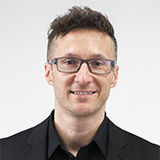
Joel Friesz has served as the Executive Director of the National Association of Community and Restorative Justice (NACRJ) since January 2022. A restorative justice practitioner for two decades, Joel has worked extensively with communities across North Dakota and region to implement restorative practices in K-12 schools, the juvenile justice system, and adult corrections. A lifelong North Dakotan, Joel resides in Fargo where he continues to support restorative justice efforts at both a local and national level.
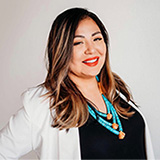
April 9-10, 2025: Keynote Speakers & Panelists
Day 1 - April 9, 2025: Keynote Speakers & Panelists
Keynote Speakers
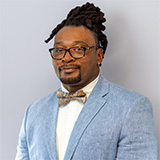
Tito Campbell (9:00-10:15 am), Restorative Justice Specialist
Minnesota State Department of Corrections
“A Life Restored”
Tito Campbell is a Restorative Justice Specialist for the Minnesota Department of Corrections. In his role with the DOC, Tito leads a Restorative Justice pilot project that employs incarcerated individuals as restorative justice mentors working on preventing and reducing violence in prison facilities. He is the point person for all Restorative Justice councils in Minnesota DOC facilities. Tito Campbell has created and supports a Restorative Justice Committee, an advisory group of formerly incarcerated individuals. Tito also serves on the Board of Directors for Volunteers of America Minnesota/ Wisconsin. Tito is justice impacted having served thirteen years in the Minnesota state prison system. While incarcerated he was a Restorative Justice council member for ten years where he was able to learn and teach about RJ to the prison community, a peer mentor and treatment unit coordinator. Tito serves as a conduit for change and hopes to create a safer and more restorative prison environment through restorative justice/restorative practices. “We are not the labels you put on us.”
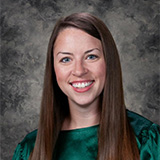
Dr. Rachel Bachmeier (3:30-4:45 pm), Principal West Fargo High School
“Restoring to What? The Importance of Community in Schools”
Rachel Bachmeier is Principal of West Fargo High School. Originally from Kent, Ohio, Dr. Bachmeier attended Marietta College in Marietta, Ohio for her undergraduate degree, majoring in History and Secondary Education. Upon graduating, Dr. Bachmeier joined Teach for America and served as a Corps Member on the Rosebud Indian Reservation, teaching 8th Grade Language Arts at Todd County Middle School. In 2016, Dr. Bachmeier moved to her husband’s hometown of West Fargo and began her career at West Fargo High School, first as an English Learner Social Studies instructor and later as an administrator. She received her doctorate from the University of North Dakota in 2024, completing a dissertation on restorative practices, and lives in West Fargo with her husband, daughter, and their rescue pup.
Panelists (12:30-1:45 pm)
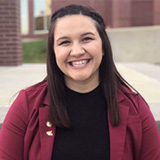
Sadie Nelson, Panel Moderator
Sadie Nelson is an enrolled member of the Sokaogon Chippewa Community and a descendant of White Earth Nation and Forest County Potawatomi, and is dedicated to restorative justice and Indigenous peacemaking. She has worked in the Homeless Response System since December 2024 and serves as the Indigenous Youth Cultural Program Coordinator at the Indigenous Association. Previously, she worked in Victim Services and Cultural Programs at Youthworks, where she was introduced to restorative justice. Influenced by her grandmother, she is passionate about teaching talking circles and culturally relevant peacemaking practices. Sadie integrates culture into her work to support marginalized communities, focusing on healing, prevention, and anti-poverty initiatives. She is also deeply involved in the Native community and holds extensive training in trauma-informed and culturally responsive practices.

Natasha Gourd, Wicanphi Tokca Win (Different Star Woman) Spirit Lake Nation
Natasha Gourd, Wicanphi Tokca Win (Different Star Woman), (Spirit Lake Nation), is a mother of four children and a member of the Spirit Lake Nation. She served five years as vice president of the Bismarck Public Schools Indigenous Parent Advisory Committee. She serves on the Native American Rights Fund Indigenous Peacemaking Advisory Committee. Natasha has developed a diversionary court system for tribal-affected youth and has been a peacemaking consultant for various tribes and organizations for ten years. She serves as the Restorative Practice Council Coordinator for the Consensus Council and a Leadership for Education Equity Public Policy Fellow for the South Dakota Education Equity Coalition.
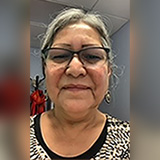
Laurie Vilas, Peacemaker Mille Lacs Band Tribal Court, White Earth Nation
Laurie Vilas (White Earth Nation) is a current Peacemaker for the Mille Lacs Band Tribal Court with a focus on custody, visitation and guardianship cases. She has been doing Restorative Justice Work for over 25 years through building bridges with local, state, and tribal systems. She has been committed to working with youth from elementary and high school students with emotional behavior disorders and at a Native American Group home residential setting serving 8–18-year-old students. Laurie is a former Circle Coordinator for “Mahnomen County Working Together” in Mahnomen, Minnesota which led to collaboratively implementing a sentencing circle for youth offenders to reduce recidivism. She has done work with prisoner reentry for Northwest Indian OIC in collaboration with Minnesota Department of Corrections to reduce recidivism of Native Americans on Leech Lake, Red Lake and White Earth reservations. In these positions Laurie utilized Restorative Justice Practices to enhance safety, wellbeing, and cultural identity through traditional teachings of Native American Values.
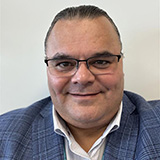
Ricky White, Niigonanakud Anishinabe Whitefish Bay First Nations, Ontario, Canada
Ricky White, Niigonanakud, is Anishinabe from Whitefish Bay First Nations in Ontario, Canada. He is Pizhew or Lynx Clan and a lifetime member of the renowned drum group, the Whitefish Bay Singers. As a result of growing up on an isolated reservation, Ricky retained deep knowledge of the Anishinaabe language and culture and those teachings continue to guide his spirit and work today. Over the last 22 years, Ricky has served as an Ojibwe Language and Culture Teacher, Assistant Principal, Principal, Executive Director of Education, and Superintendent of Schools. He was exposed to world class professional development, especially in the key areas of school improvement, school climate, and reaching students that our school systems struggling with.
Ricky has shifted his professional career to strategically sharing the blueprints of best practices for student success and working to help turnaround schools, programs and communities. He started a consulting company, fittingly called “First Nations Consultants, ” and is now sharing his strategies all over Canada and the United States to inspire and unite his methods and messages for enhancing the educational experience for all involved.
Day 2 - April 10, 2025: Keynote Speakers & Panelists
Keynote Speakers
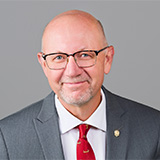
Kendall Hughes (9:00-10:15 am), Restorative Justice Practioner
“Can Restorative Justice Be a Vaccine for Violence?”
Kendall Hughes served as the first-ever director of the newly created Office of Restorative Practices (ORP) within the Minnesota Department of Public Safety (DPS) before recently returning to community and grassroots work. With decades of experience — both in the Federal Bureau of Prisons and a nonprofit in southeastern Minnesota — Hughes has a deep understanding of helping people rebuild their lives after crime.
Hughes has spent his career working with people affected by crime — those who have been harmed and those who caused harm. He started as a nonprofit worker in lower-income communities and then served for 20 years as a federal prison chaplain. During this time, he developed programs that helped incarcerated men build skills, form supportive relationships and engage in meaningful conversations with survivors of violent crimes. In 2019, he co-founded Three Rivers Restorative Justice, which helps people resolve conflicts without going to court. The program has been successful, with high satisfaction rates from participants and a reduction in reoffending.

Lauren Starling, Artist in Residence
Lauren Starling (they/them) is a graduate of MSU Moorhead. They earned a Bachelor of Arts in Criminal Justice, emphasis in Psychology, with a minor in Juvenile Justice. Lauren has bravely spoken publicly about channeling the aftermath of domestic abuse and sexual assault, into creating large scale murals and public art. Lauren's primary works are in acrylic painting and illustration and is known especially for creating nearly 100 murals across the tri state region. In addition, they have been a painting instructor and have been independently teaching public & private painting classes. They also have volunteering service with assorted human rights groups.
The majority of Lauren's professional work experience is in the mental health/human services field. They are currently working full-time at a nonprofit with incarcerated women, providing rehabilitative services to achieve social reintegration, as well as continuing to take on freelance art projects. Lauren believes in the power of redemption, embracing fresh starts and resilience to emerge stronger from adversity. Lauren is interested in pursuing higher education as an Art Therapist to promote healing and empowerment through the creation of art.
April 9-10, 2025: Speakers
Wednesday Morning
April 9, 2025
Speaker Bios
Designing a Sustainable Blueprint for District-Wide Restorative Practices and Reducing Recidivism
The Art of Connection: Building Restorative Communities Through Creativity and Wellbeing
Teaching Midwesterners to Stop Fighting
Transformative Community
Exploring the Intersections of Transformative Mediation and Restorative Justice
Thursday Morning
April 10, 2025
Speaker Bios
Using Talking Circles in the College Classroom to Build Equity and Community
When the Teacher Speaks: Why I Do This Work
Empowering Change: The Role of Lived Experience in Justice Involvement
Restoring Hope and Cultivating Community Through Restorative Practices
Building and Restoring Connections: A Panel Discussion on Fostering Equitable, Inclusive, and Supportive School Communities
